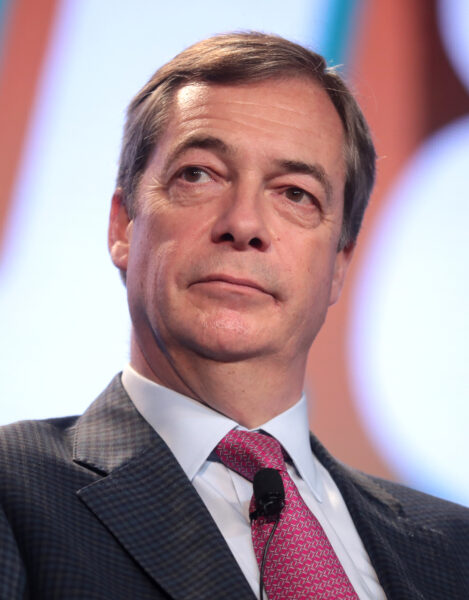Theodore Dalrymple on the British bank — probably not the only one to do things like this — that compiled a “dossier” of information on one of their long-term clients with a view to de-banking him, his family, and associates. It might have worked if the client was a private citizen with no particular public profile, but the client was someone who absolutely is not that kind of man:
The following day, [National Westminster Bank CEO Alison] Rose resigned, admitting to “a serious error of judgment”. The value of the bank fell by more than $1 billion.
The weasel words of Ms. Rose and the bank board are worth examination. They deflected, and I suspect were intended to deflect, the main criticism directed at Ms. Rose and the bank: namely, that the bank had been involved in a scandalous and sinister surveillance of Mr. Farage’s political views and attempted to use them as a reason to deny him banking services, all in the name of their own political views, which they assumed to be beyond criticism or even discussion. The humble role of keeping his money, lending him money, or perhaps giving him financial advice, was not enough for them: they saw themselves as the guardians of correct political policy.
It was not that the words used to describe Mr. Farage were “inappropriate”, or even that they were libelous. It is that the bank saw fit to investigate and describe him at all, at least in the absence of any suspicion of fraud, money laundering, and so forth. “The error of judgment” to which Ms. Rose referred was not that she spoke to the BBC about his banking affairs (it is not easy to believe that she did so without malice, incidentally), but that she compiled a dossier on Farage in the first place — and then “error of judgment” is hardly a sufficient term on what was a blatant and even wicked attempt at instituting a form of totalitarianism.
This raises the question of whether one can be wicked without intending to be so, for it is quite clear that Ms. Rose had no real understanding, even after her resignation, of the sheer dangerousness and depravity of what the bank, under her direction, had done.
As for the board’s somewhat convoluted declaration that “after careful consideration, it concluded that it retains full confidence”, etc., it suggests that it was involved in an exercise of psychoanalytical self-examination rather than of an objective state of affairs: absurd, in the light of Ms. Rose’s resignation within twenty-four hours. The board, no more than Ms. Rose herself, understood what the essence of the problem was. For them, if there had been no publicity, there would have been no problem: so when Mr. Farage called for the dismissal of the board en masse, I sympathised with his view.




